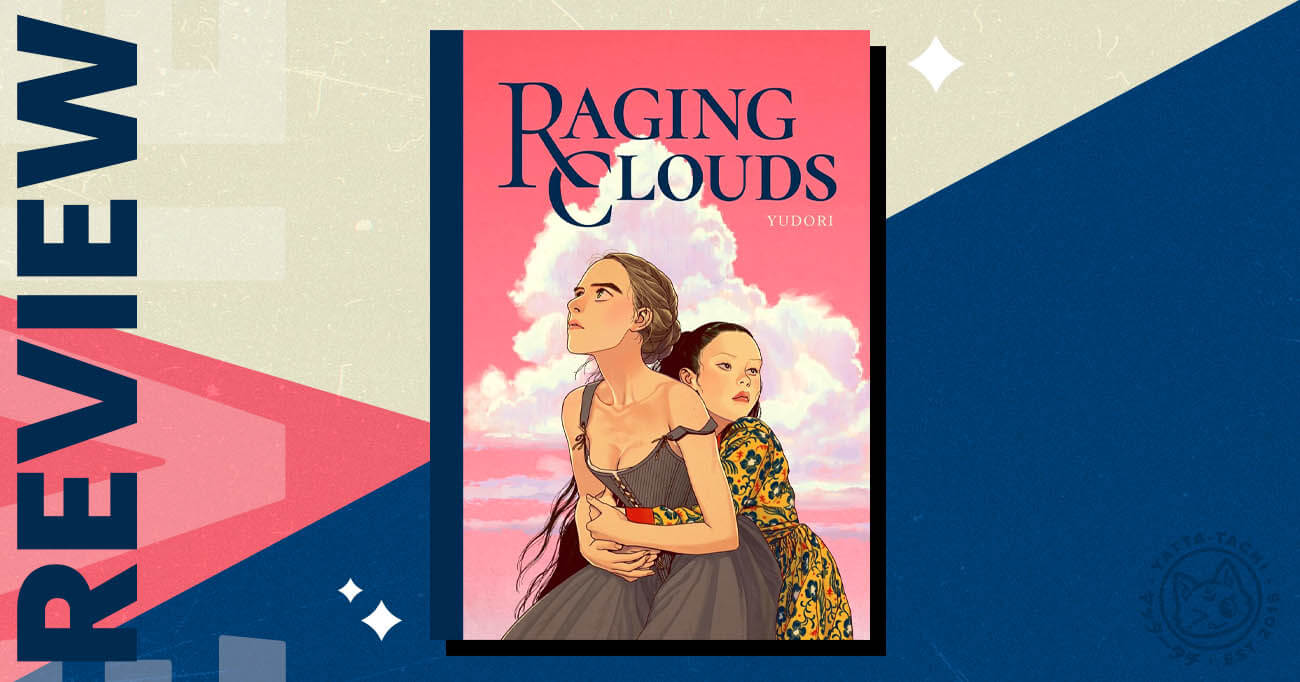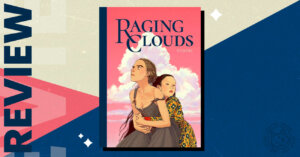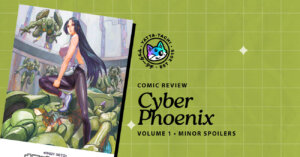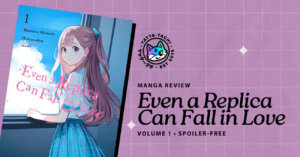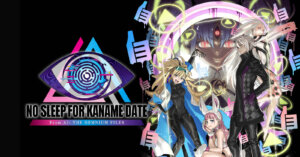This review is based on an advance reading copy covering the first 132 pages. The full book will be 364 pages. Therefore this review cannot be said to represent the final product. Please keep this in mind.
Amelie studies dead bats and bird skeletons. She longs to one day create a flying machine. Unfortunately she was born in the Netherlands during the 16th century, where women were not supposed to think about such things. Instead she is expected to peel potatoes, do the laundry and have unsatisfying nightly sex with her boorish husband Hans.
Then Hans brings a woman, Sahara, home with him from a business trip. She is plump where Amelie is thin, sensual while Amelie despises sex. Hans bought her for 1,000 ducats. Amelie hates her. But once they start talking, she realizes that Sahara is the only person she has ever met who does not judge her for who she is. Could the two of them have more in common than Amelie thought?
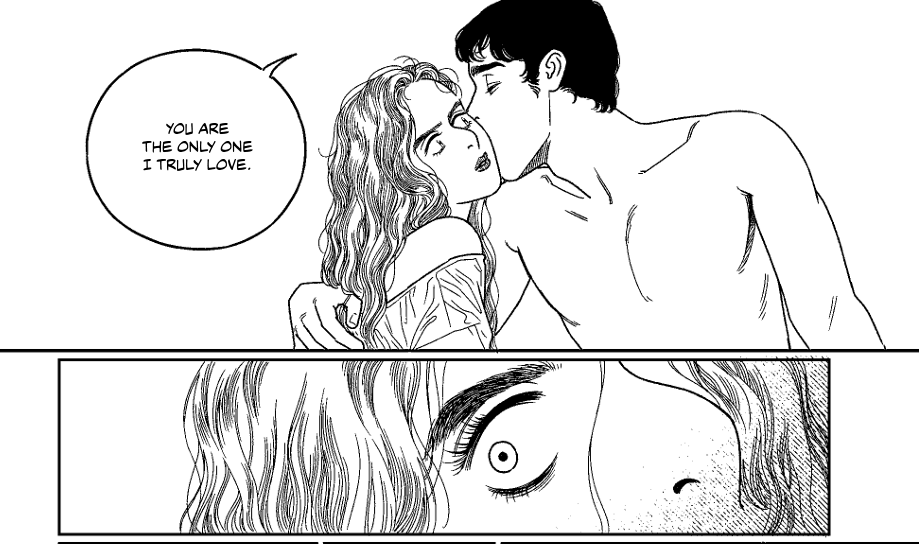
Iron maiden
Raging Clouds is the first graphic novel by Yudori, a Korean comics artist who lives in the UK. She previously drew the webcomics Pandora’s Choice and Curious Case of the Ring Brothers. What stood out to me the most about her past work was her willingness to let her characters be mean to each other. They aren’t pure heroes or villains. Instead they contain multitudes: pluck, cowardice, and shame, squeezed to bursting in the iron maiden that is patriarchy.
Raging Clouds continues to develop this theme. The heroine Amelie is easy to like on paper. She’s a smart noblewoman judged by her peers for being interested in science. Amelie hates her marriage and wants nothing more than to lie around reading books with her hair unbound. But there’s also something a bit ghoulish about how she picks up dead bats and studies their wings.
Not to mention, she’s a bigot. In a conversation with Hans, she expresses shock that he would do business with a Huguenot (a Reformed Protestant Christian, or Calvinist.) In response Hans brings up auto-da-fé, the burning of heretics. “No one deserves to be burned to death,” he says. Hans might be the villain of this story, but Yudori befuddles your expectations by letting him be the tolerant one at times as opposed to his wife.
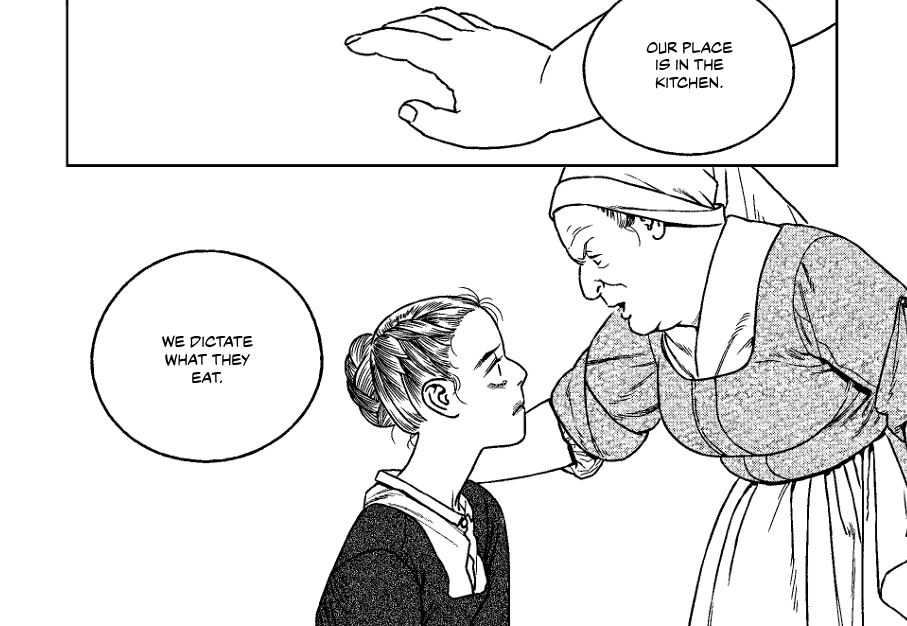
Poisoning
Every other character we meet along the way is given the same chance to surprise you. Amelie’s younger servant, Yolente, makes a bodice exposing her breasts so that she might flirt with Hans. Amelie’s older servant, Eva, matter-of-factly poisons Hans’s slave the moment she arrives to protect Amelie’s future. These aren’t just bit parts meant to serve the lead roles, as you sometimes find in manhwa. They all have something they want and pursue those objectives with single-minded zeal.
As a result, Raging Clouds avoids one of my major historical fiction pet peeves: when the characters speak and act the same way as people living today. Certainly the story speaks to modern-day questions of race, misogyny and colonialism. But the way Amelie thinks and experiences the world is just far enough removed from ours that I was able to buy her as a real historical figure.
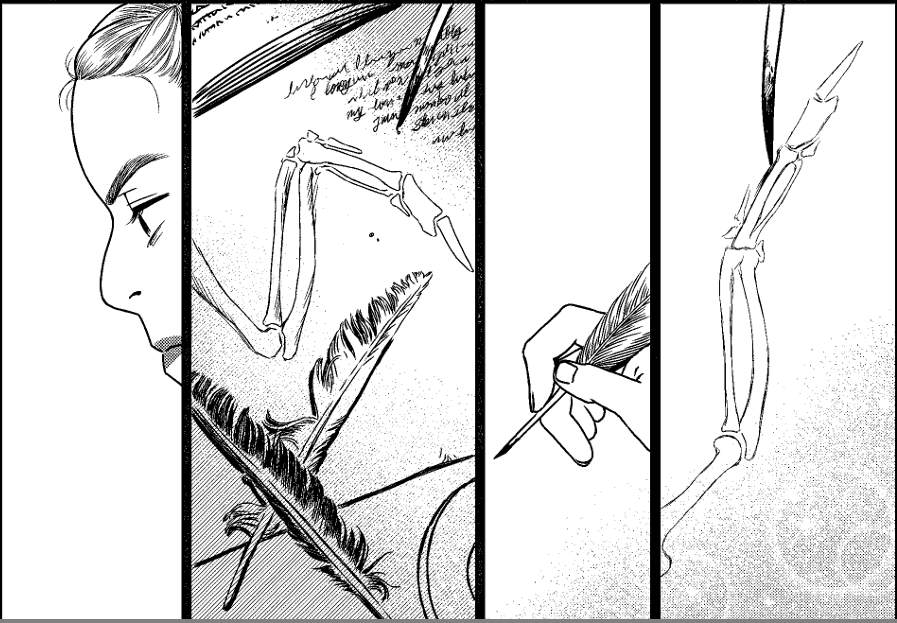
Bird skeleton
Of course, Raging Clouds is a comic, and it wouldn’t matter how good the story and characters are if it didn’t function on the page. Thankfully Yudori is very skilled at panelling. The book has a fantastic sense of rhythm, knowing just when to stay with an action across multiple panels and when to leave distance. Amelie’s studies cross-cut between her hands and her research to demonstrate her single-minded focus. Meanwhile, the scenes where she has sex with Hans are cold and impersonal. Her eyes catch the reader’s but never his.
The book is also black and white rather than full color as the author’s previous works were. The lack of color ensures that Yudori’s manga influence stands out even more. Her characters have the high noses and unblemished skin of josei heroines and heroes. Speed-lines appear out of thin air when they are upset and flowers when they are happy. There’s even a few moments of super-deformed “chibi” comedy.
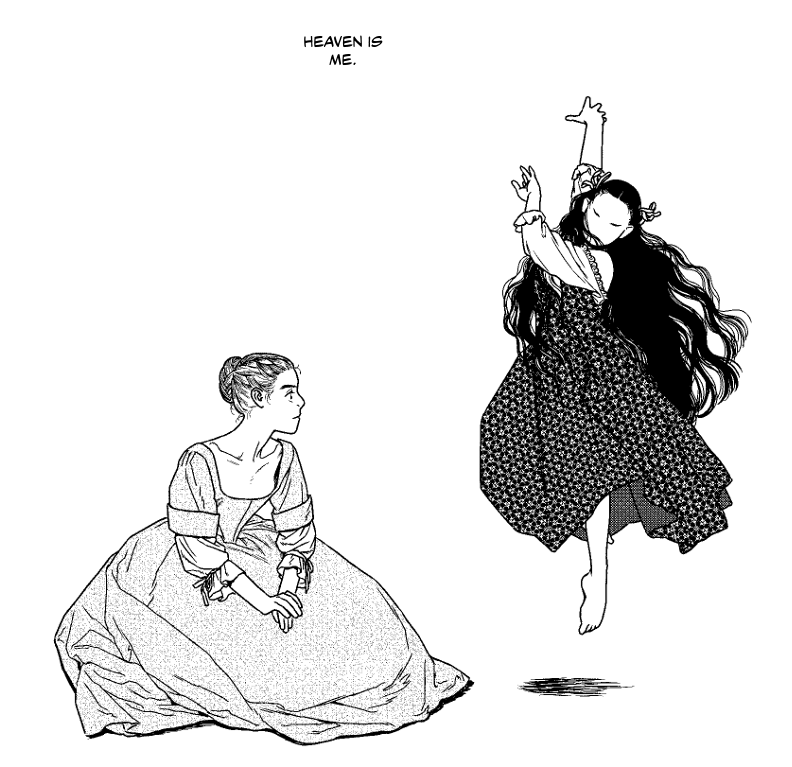
Raging clouds
Yudori’s art stands up without color just fine. If anything, I think it marks an improvement over Pandora’s Choice. Color is an excellent vehicle for meaning but takes extra time and labor to implement. Black and white allows for Yudori to control the detail and tone of each scene exactly.
The advanced reader’s copy for Raging Clouds included just 132 pages, about a third of the book. Therefore there’s a lot that I can’t say yet. Will Amelie build her flying machine? Will she end up joining forces with Sahara against their owner Hans? Since Yudori always aims for friction over easy sentiment I’m certain that the resolution will be messy. I’d love to see a writer versed in history, feminism, and orientalism take a crack at this book and its execution, but that will likely have to wait until after its publication.
I’m rooting for Yudori, though. Raging Clouds dispenses with the compromises of the webtoon format in favor of traditional manga-style art and pacing. While it is hardly the only feminist historical comic, it’s certainly spikier than its contemporaries. I’m excited to see how the book resolves.
If you liked Raging Clouds, you may like…
Raging Clouds will be available on publication from Bookshop, Amazon and Barnes and Noble.
Credits:
Story and Art by Yudori
Published in English by Fantagraphics Books
Thank you to Fantagraphics Books for the advance copy for review. Receiving this advance copy had no effect on the reviewer’s opinions as expressed here.
Article Editor: Kelly Stewart
The Good
- Fantastic panel-by-panel rhythm and pacing
- Prickly, difficult characters
- Works as both historical fiction and modern-day allegory
The Bad
- Do you expect characters to be likeable? Yudori doesn’t care

Featured Sponsor - JAST
The sweetest romance and the darkest corruption, the biggest titles and the indie darlings; for visual novels and eroge, there's nowhere better.
Big thank you to our supporters
From their continous support, we are able to pay our team for their time and hard work on the site.
We have a Thank-You page dedicated to those who help us continue the work that we’ve been doing.
See our thank you page